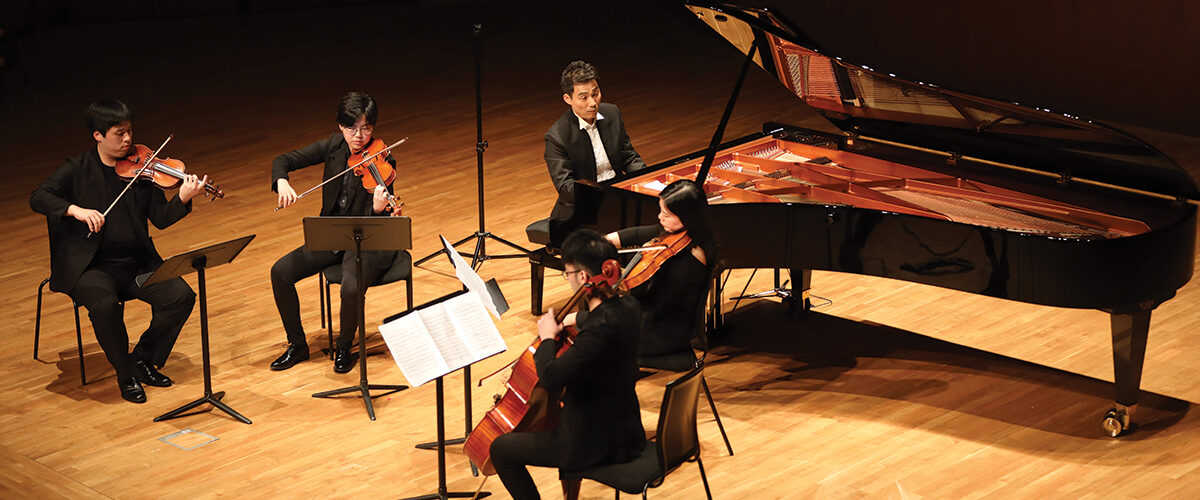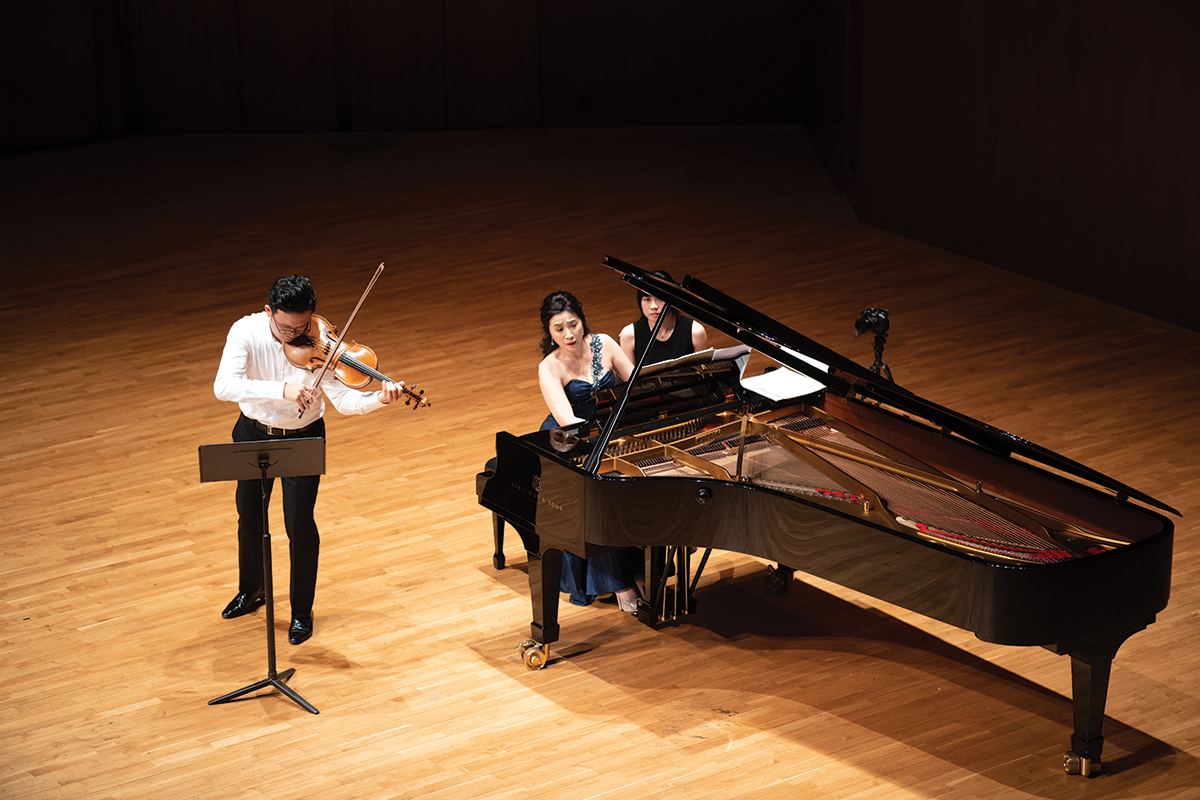The programme contained both solo and chamber repertoire, featuring some of the greatest works of all time by Schumann, Schubert, Chopin and Mozart.
Schumann’s writing was elaborate and complicated – yet this performance of Kreisleriana was responsive, imaginative and passionate.
The Fantasy, D940, of Schubert was undisputedly one of the greatest pieces for four hands at a piano with an enduring appeal through generations. The duo team demonstrated reverence to this melodic work with insight and care.
Chopin’s Polonaise-Fantaisie was delivered elegantly and consistently, emphasising lyricism and fantasy without pounding nor posturing.
For the last piece of the programme, Raymond partnered with the Nova Ensemble together to present the original Mozart Concerto in A Major with quartet. The overall tone was colourful and sensitive throughout. The final joyous Allegretto movement was upbeat and pleasant, distinctively Mozart.
It was certainly a very enjoyable concert where the audience continued to give rounds of applauses to bid for several encore pieces including Piazzolla’s Libertango with Nancy Loo and Brahms’ Hungarian dance in a piano trio setting – a truly wonderful evening treat.
The first and second half of the concert offered quite interesting contrast in the programme – the audience enjoyed an intense, energetic, focused and technically-demanding solo viola performance in the first half followed by a more standard repertoire with an added pianist in the second half.
The concert began with Kodály’s transcription of Bach’s Chromatic Fantasy, a piece that was supposed to be played on harpsichord with ten fingers but now reduced to just four. Andrew performed the remarkable solo arrangement with solid confidence and superb technicality.
The second piece was the late Hungarian avant-garde composer György Ligeti’s six-movement Sonata for Viola Solo where the audience was struck by microtonal writing at the opening. Andrew was successful in evoking folksy rhythms on stage. Distinctive characters were portrayed vividly across the different movements. The audience cheered and screamed at the end of the performance – they continued to be amazed and to talk about the piece during the intermission.
The second half started with Brahms’ Viola Sonata in F minor – originally written for both clarinet and piano which, after the composer’s own arrangement, became undoubtedly one of the most beloved pieces for violists. The violist and the pianist Cheng Wai were fully engaged with each other as chamber music partners. The Brahms piece was beautifully executed with balance and idiom, creating an elegant chant-like dialogue between the two instruments.
The last piece, Piazzolla’s masterpiece Le Grand Tango took on an exciting and energetic tempo which made for a perfect ending for the concert.



